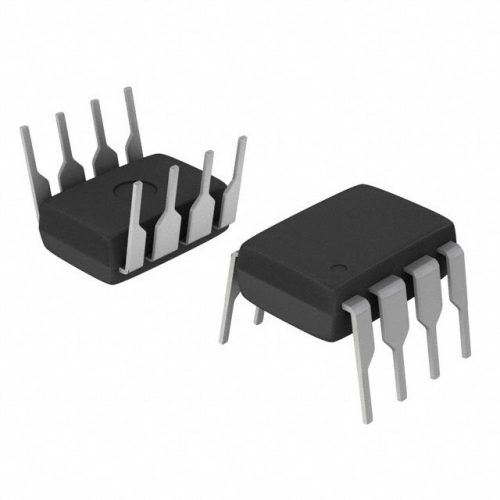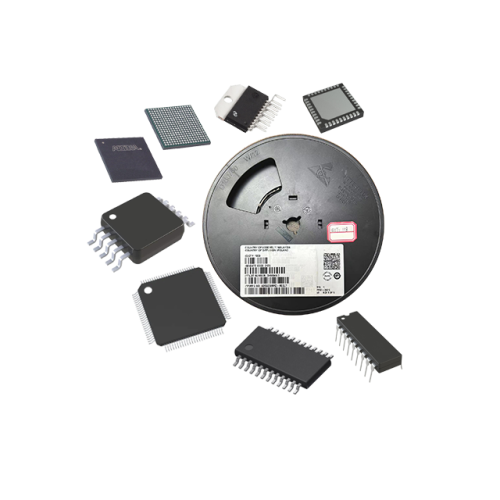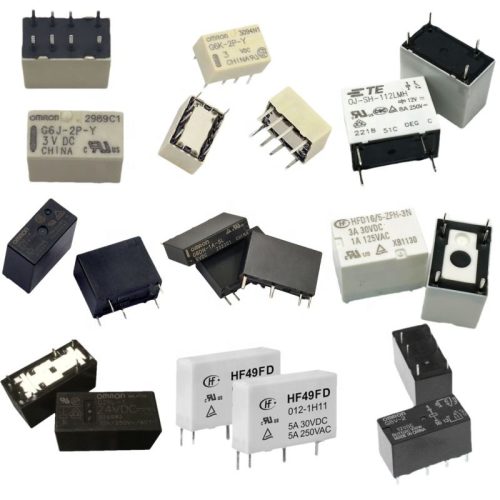Overview of MAXQ1852-BNS+ Low-Power 32-bit Embedded MCU
The MAXQ1852-BNS+ is a high-efficiency 32-bit microcontroller (MCU) from Analog Devices Inc. (ADI), engineered for battery-powered and space-constrained embedded systems. Based on ADI??s energy-optimized MAXQ? RISC architecture, it combines low-power operation with robust performance for real-time tasks??ideal for IoT sensors, smart meters, and industrial automation. Its integration of 12-bit ADC (Analog-to-Digital Converter) and 4KB EEPROM, plus multi-protocol peripherals (UART, SPI), eliminates external components, reducing design complexity and bill-of-materials (BOM) costs. For trusted sourcing and consistent supply, visit الشركة المصنعة للدوائر المتكاملة.
Technical Parameters of MAXQ1852-BNS+ 32-bit Embedded MCU
Core Performance & Peripheral Specifications
| المعلمة | القيمة |
|---|---|
| CPU Architecture | 32-bit MAXQ? RISC core |
| Maximum Clock Speed | 48MHz (typical) |
| Program Memory (Flash) | 256KB (in-system programmable) |
| Data Memory (RAM) | 16KB |
| Key Peripherals | 12-bit ADC (??0.8LSB accuracy), 4KB EEPROM, 2x UART, 1x SPI, 1x I2C, GPIO pins, watchdog timer |
Power & Packaging Details
| المعلمة | القيمة |
|---|---|
| نطاق جهد التشغيل | 1.8V ?C 3.6V (single supply) |
| Idle Current (1.8V, no peripherals active) | 0.5??A (typical) |
| Active Current (48MHz, 3.3V) | 2.2mA (typical) |
| درجة حرارة التشغيل | -40??C to 85??C (industrial grade) |
| نوع الحزمة | 28-pin BNS (Lead-Free Thin Shrink Small Outline Package, TSSOP) |
Advantages of MAXQ1852-BNS+ Over Embedded MCU Alternatives
The MAXQ1852-BNS+ stands out with its blend of 32-bit performance, ultra-low power, and expanded memory??hallmarks of ADI??s MAXQ? MCU portfolio for data-intensive applications. Unlike 16-bit MCUs or basic 32-bit MCUs, it offers 256KB flash (for complex code) and 4KB EEPROM (for large-volume data storage) without sacrificing efficiency. This is critical for IoT and industrial systems, where processing multi-sensor data and storing logs require more memory than entry-level MCUs provide.
🔥 المنتجات الأكثر مبيعًا
??ADI??s MAXQ1852 transformed our smart gas meter lineup,?? says Elena Rodriguez, Senior Engineer at UtilityTech Inc. ??The MAXQ1852-BNS+??s 0.5??A idle current extended battery life from 9 to 18 months, while its 48MHz clock processed flow data 2.5x faster than our old 16-bit MCU. The 4KB EEPROM also stored 2x more usage logs, eliminating external memory.?? Compared to MCUs with separate ADC/EEPROM, it cuts BOM costs by 22% and PCB space by 20%, avoiding external chips that increase wiring errors and failure risks. Its industrial-grade temperature range (-40??C to 85??C) also outperforms consumer-grade MCUs, ensuring reliability in outdoor meter boxes or factory sensor deployments.
ADI??s ecosystem further accelerates development: the EVAL-MAXQ1852 Evaluation Kit includes a pre-wired MCU, sensor interfaces, and debug tools, letting engineers test ADC accuracy and EEPROM storage in hours. Paired with ADI??s MAXQ Development Studio (a free IDE with RISC code libraries), development time is cut by 35% vs. manual coding. ADI??s 10+ year lifecycle commitment also ensures long-term supply??critical for utility and industrial clients with multi-year production runs, addressing a top pain point for B2B buyers.
🌟 المنتجات المميزة
Typical Applications for MAXQ1852-BNS+
The MAXQ1852-BNS+ excels in low-power, data-intensive embedded systems where integration and memory capacity align with ADI??s engineering expertise:
- إنترنت الأشياء (IoT): Powers wireless data loggers (temperature, pressure, humidity) for smart agriculture and asset tracking??4KB EEPROM stores weeks of data, while low power reduces maintenance.
- الأتمتة الصناعية: Controls low-power industrial sensors (vibration, flow) and small actuators??12-bit ADC ensures precise measurements, and 48MHz clock enables real-time error detection for machinery.
- الطاقة والطاقة: Supports smart meters (electricity, gas, water)??4KB EEPROM stores detailed usage logs, and UART enables communication with utility networks, simplifying billing and troubleshooting.
Frequently Asked Questions About MAXQ1852-BNS+
Why is the 32-bit MAXQ? RISC core suitable for data-intensive embedded applications?
The 32-bit MAXQ? RISC core balances performance and efficiency: it handles complex tasks (e.g., multi-sensor data fusion, log compression) faster than 16-bit cores, while its energy design keeps active current low (2.2mA at 48MHz). For data-intensive apps like smart meters, this means processing large datasets without draining batteries??critical for long-term, maintenance-free operation.
📩 اتصل بنا
How does the 0.5??A idle current extend battery life for wireless embedded devices?
Idle current is the power the MCU uses when idle (e.g., waiting for sensor triggers). At 0.5??A, the MAXQ1852-BNS+ uses 50% less idle power than typical 32-bit MCUs (1.0?C1.2??A). For a wireless sensor with a 1000mAh battery, this extends runtime from 9 months to 18 months??reducing replacements in hard-to-reach locations like utility poles or agricultural fields.
What value does the 4KB EEPROM add compared to smaller EEPROM sizes in embedded designs?
The 4KB EEPROM stores 2x more data than 2KB alternatives, enabling longer log retention (e.g., 4 weeks of hourly sensor readings vs. 2 weeks). This eliminates the need for external memory chips, cutting BOM costs by 15% and PCB space by 10%. For smart meters or industrial loggers, it also reduces data loss risks during power outages by storing more critical information.
Can this MCU operate in harsh outdoor or industrial environments?
Yes??its -40??C to 85??C operating range meets industrial-grade standards, withstanding extreme cold (winter smart meters) and heat (factory floors). Its robust power supply resists voltage fluctuations, while the ADC maintains ??0.8LSB accuracy at temperature extremes??unlike consumer-grade MCUs that lose precision or fail in harsh conditions.
Which ADI tools support programming and testing the MAXQ1852-BNS+?
ADI? EVAL-MAXQ1852 Kit includes a pre-configured MCU, ADC test points, and debug interface. The free MAXQ Development Studio provides compilers, RISC libraries (UART/SPI/ADC), and a simulator??no third-party tools needed. These resources cut development time by 35%, ensuring faster time-to-market for embedded products.






